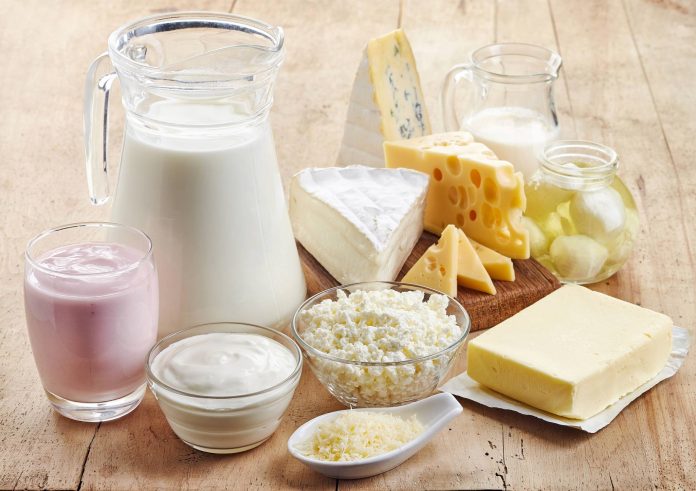At some point or another many of us have experienced the internal turmoil that comes with deciding whether you are on the side of the coin that fervently defends the health benefits of dairy, or the side that denounces dairy as one of the most unhealthy food groups on the planet.
The truth is, both sides are probably half right, and we all know that the internet will always provide what we are looking for depending on how we phrase our search queries. For example, if I Google “why dairy is deadly”, thousands of sites, blogs, research papers & studies supporting that thesis will appear, and a lot of them are very well written along with having an ample amount of seemingly scientific backing. But if I Google the opposite, “why dairy is an indispensable part of a healthy diet”, the opposite proof will present itself in the same magnitude. So this article is not about pushing the stance I’m personally taking, but more about presenting some of the perspectives of both opinions.
First, on the side that supports the health benefits of dairy, what we know is the following… ”The United States Department of Agriculture (USDA) Choose My Plate recommendations state that adults should consume 3 servings of dairy products per day. Children should consume around 2 or 2.5 servings per day, depending on their age.” Why is this the recommendation? Simply put, due to the nutrient-dense nature of most dairy products. For example, dairy products are a great source of calcium, which is needed to build strong bones as well as support bodily functions such as nerve transmission. Dairy is also rich in phosphorus, magnesium, vitamin D, protein and other nutrients. One example of a condition that demonstrates the need for adequate calcium and vitamin D in a healthy diet is osteoporosis, which, through a lack of adequate nutritional support of said minerals / vitamins, causes bones to gradually become brittle and increasingly prone to breaking. However one of the main issues with the research around this particular point is that most studies do not take into account lifestyle factors or other predispositions that may or may not contribute to proving a point, nor can they fully prove that it was in fact dairy that had the causal effect on the participants in the studies. One thing is clear though, that calcium as well as vitamin D are in fact critical for maintaining long-term bone integrity, so if you do not get these through dairy consumption, you should focus on getting them from other whole food sources.
Another controversial dairy topic involves the high saturated fat content of whole dairy products. On this point, the AHA (American Heart Association) clearly states that diets high in saturated fats can lead to high cholesterol & heart disease among other ailments. Their advice is for people to go with low fat / skim or no-fat dairy. However, more recent research that has been proliferated in part through the popularization of the ketogenic diet would suggest the exact opposite of this opinion to be true. Believers in keto not only consume high amounts of saturated fats in the form of grass-fed butter, whole milk among others, they advocate that it is this high saturated fat content that protects the myelin sheaths of the nervous system, supports hormonal balance and actually helps stave off cardiovascular as well as nervous system diseases.
Touching on lifestyle factors again, though, it’s important to remember that if you smoke, drink to excess, have a sedentary lifestyle and don’t get the recommended amount of fruits & vegetables in your diet, that no amount of whole fat dairy or lack thereof will fully support prevention of lifestyle diseases. For this reason, my stance on the subject is actually quite neutral, and instead of trying to prove which point is right, I focus on striving for balance in my life. This includes a balance of exercise & rest, enjoying alcohol in moderation, eating whole fat dairy and also abstaining for it periodically. One thing I noticed personally is that if I eat a high amount of dairy in a concentrated period of time, it’s much more difficult to achieve the same level of muscular & vascular definition through working out than it is when omitting dairy from my diet. So, if you were trying to get competition ready (or just tone up before the summer) it may help to omit dairy from your diet for a few weeks or months. Doing this also helps me to feel satisfied after eating increasingly smaller portions of dairy products, whereas when you do something every single day you build up a tolerance that often leads to increasing said variable beyond what would be considered a healthy, balanced range.
The last point to note is that if you are (or suspect that you might be) lactose intolerant, it’s important to speak to your physician about healthy alternatives that you can supplement your diet with to make sure you achieve optimal nutrient intake on a consistent basis.
So, if you were on the fence, don’t stress (sometimes the stress of going back and forth in your mind wondering “to eat dairy or not to eat dairy” may be even worse for you than just making the decision you want to make). Maintain balance – for example, you could say “I will only consume dairy once / twice a week, on the weekends, and during the week I’ll abstain from it”, much the same as you could do with alcohol. I find this approach to be quite refreshing because you will reap the benefits of both abstinence as well as moderate indulgence, and this, in my case at least, also helps me to feel like I’m living my life and enjoying it, but also making sure to stay healthy while doing so.
So on that note, until next time, biohackers…
SOURCES [1] – https://www.medicalnewstoday.com/articles/326269










